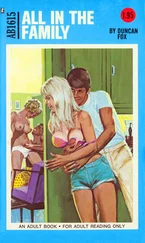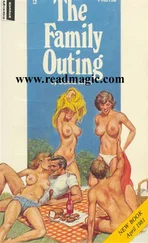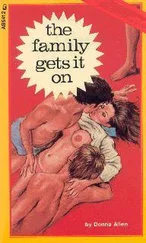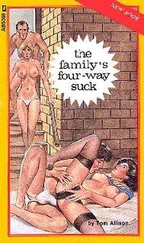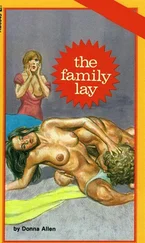So let’s see if you can solve the puzzle. Who killed Perrine Ingrey—how, when and why? I have given you every possible clue, so you should be able to work it out.
15
I read the last two paragraphs three times, then lay the pages on the floor. “Ellen, please.”
“No. I let you read it. You said that was all you wanted.”
“I didn’t realize there’d be no ending!”
“Oh no you don’t! Ha! Got there before you.” One of Olwen’s Bedlingtons has roused himself to come and see if what’s been placed on the carpet is edible. Putting Ellen’s story on a high shelf, she says, “There we go—out of harm’s way.” The dog barks an objection.
Alex, Ellen and I are still on probation. Olwen’s dogs are happy to have Figgy back, but not so sure about the rest of us. I think they’re worried about losing their majority status if too many humans turn up.
I am living the premonition I had all those months ago in a traffic jam on the North Circular. Germander, 8 Panama Row—a house I would not choose in a million years—is temporarily my home, and I don’t mind its proximity to a six-lane road at all. The noise and the fumes don’t bother me one bit. I’m so happy and grateful to be here, safely far away from Anne Donbavand, that I can’t believe my luck.
It can’t have been a premonition. There’s no such thing. A complete coincidence is more plausible. As for the strange, strong feeling I had when I first saw Olwen’s house . . . it was the day I swapped my old life for a new one. I was probably more nervous than I realized. If Anne Donbavand can dream things up out of nowhere, perhaps I can too. Perhaps we all do it from time to time, and the mistake we make is falling for everything that crosses our minds that feels urgent and true.
“That’s what real life is like,” Ellen tells me. “Often there’s no resolution.”
“But in your story there is one,” says Olwen. “You don’t reveal it, but it’s clear there’s an answer.”
“You’ve read it too?” Ellen looks surprised.
“Only the last bit. It caught my eye when I was at Maggie’s printing it out for your mum. I liked the ending. It’s a challenge to the reader.”
“I don’t want a challenge,” I say. “I want to know who killed Perrine Ingrey, and—to quote your last chapter title—how, when and why?”
I never said that to read Ellen’s story was all I wanted. It was one of my wants, the first one. Now I want other things.
“Why do you care who did it?” Ellen snaps. “What does it matter?”
How can I explain to her that, as a central character in Anne Donbavand’s fiction, I need to understand my role as fully as possible? Maybe knowing who murdered made-up Perrine will make no difference to me—but until I have the answer, I can’t be sure of that.
“I wonder if we should try and work it out, like the story tells us to,” Olwen suggests. “If we get it right, Ellen might tip us the wink.”
“Would you, El?” I ask.
“No.” She chews the inside of her lip and looks down at her knees.
“Because George swore you to secrecy? Did he tell you that he and his family would be harmed if you told anyone at all? Even me and Dad?”
“No.”
Olwen gives me a look that says, “Don’t put words in her mouth. Let her speak.”
I let the silence grow around us, hoping Alex doesn’t pick this moment to come back. He’s out with Maggie, doing the supermarket shop.
“I don’t know who killed Perrine,” Ellen says eventually. “Neither does George. The story’s written as he told it to me. I’ve put in every detail I can remember, exactly as he said it. Most of it’s word for word what his mum’s told him, though George added a few comic touches for fun—like the Eminem rappy bit.” Ellen smiles proudly. It’s a sad smile. Unlike me, she isn’t relieved to be far from the Donbavands. She misses being able to see George’s window from hers.
“George doesn’t know who murdered Perrine?” I snap. For fuck’s sake. How can he not know?
Could Ellen be lying? She already feels guilty for “betraying” George by letting me read the story. Was that the compromise she made with her conscience: share the text but offer nothing beyond it; keep the family secret of her beloved fiancé Urban Ingrey?
A false secret is the worst kind of lie. Swear you won’t tell anyone this thing I’m telling you that isn’t true—or else you’ll soon find out I’m manipulating you. Swear you’ll keep it to yourself and never check the facts with anyone else, especially not anyone more honest than me.
Anne Donbavand invented a web of fake secrets to imprison her children and make them fear strangers. George decided he loved Ellen enough to stretch out that web and entangled her in it too. Now she’s trapped with the Donbavands in their shared false knowledge of events that never took place, and I’m the stranger she fears confiding in.
“Whenever George asks his mum, she says he should be able to work it out,” Ellen tells Olwen. She’s given up on me as audience. I must look too angry. “She says the facts are all there for him to see. That’s why my story ends the way it does.”
I can’t believe I’m hearing this.
“She won’t tell George explicitly because that would put his life even more at risk than it is now, and she’s always said that if he ever comes up with the answer, she’ll refuse to confirm it.”
“Well, then why tell the poor boy the story at all, for goodness’ sake?” says Olwen.
“I wish she hadn’t,” Ellen says bitterly. “George hates knowing that all those horrific things happened and that he’s related to them. Why did Anne have to tell him? I mean, she wanted to protect him and Fleur—I get that—but what kind of protection is that? ‘Don’t forget, children, there’s someone out to get us all and there always will be, unless and until they succeed’?”
“Don’t feel too sorry for George, Ellen,” Olwen says. “His mother might be far from ideal, but he has the best and most loyal of allies: you.”
Ellen looks slightly mollified. I wonder if she’s told Olwen about her and George’s marriage plans. For some reason, I suspect she might have, though Olwen hasn’t said anything about it to me. Alex still doesn’t know; he would certainly have mentioned it.
“Ellen, you know it’s not true, don’t you?” I say gently.
“What’s not true?”
“The story you’ve written. I know George believes it because it’s what his mother’s told him, but . . . it’s a lie from start to finish.”
Ellen recoils. She shakes her head vigorously, as if to dislodge something. I wish I’d found a better, more tactful way to say it.
“But . . . no! How can it not be true, Mum? No one would make up something so elaborate! That would be, like, the craziest thing ever!”
“I think that’s what Anne Donbavand is,” I say. “No, actually—not crazy, but deeply and wickedly manipulative, disguised as crazy. Think about it, El. I can’t believe you haven’t Googled all the names—Perrine Ingrey, Lisette, Urban. I did, and I found nothing. No stories of murders, no Malachy Dodd death. No Ingreys ever living at Speedwell House . . .”
“That’s because it was all hushed up! It was kept out of the papers, and never reached the internet. That’s what George’s mum told him.”
“She’s a pathological liar, El. I know which families have lived at Speedwell House in the last hundred years. I can show you a timeline, with no gaps. There are no Ingreys, and no families containing a murderer who was subsequently murdered.”
I leave a gap for this information to sink in. Then I say, “George’s family never changed their names. His dad was born Stephen Donbavand. He’s been called it all his life. Anne Offord—that was her maiden name—married him and became Anne Donbavand. I have paperwork from a private investigator to prove all this.”
Читать дальше


